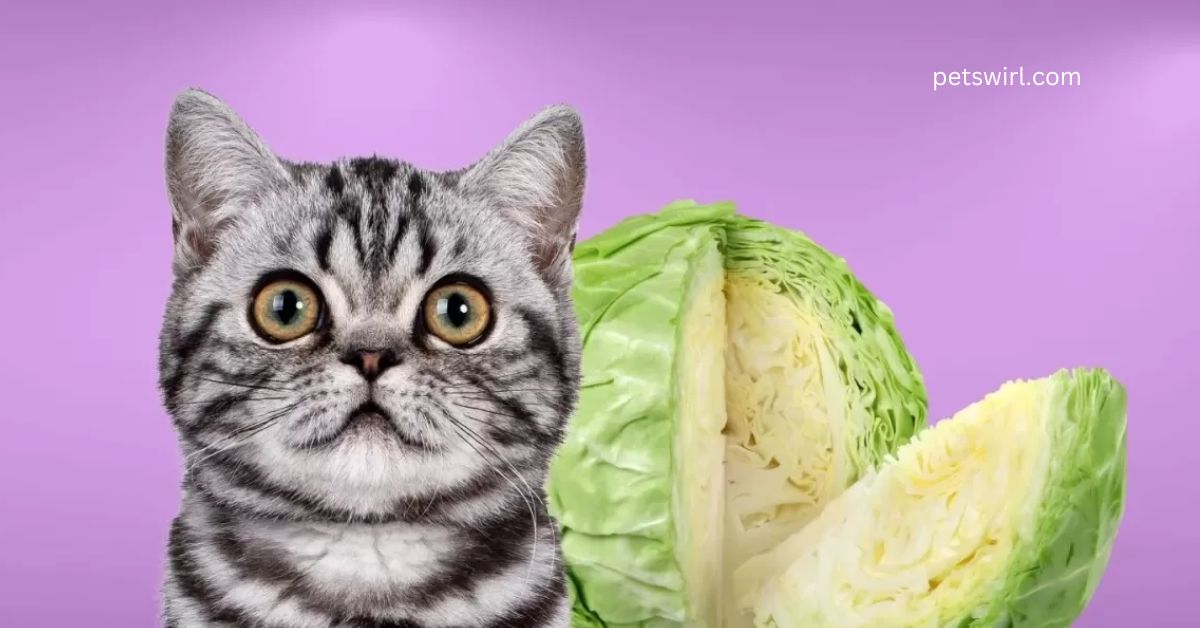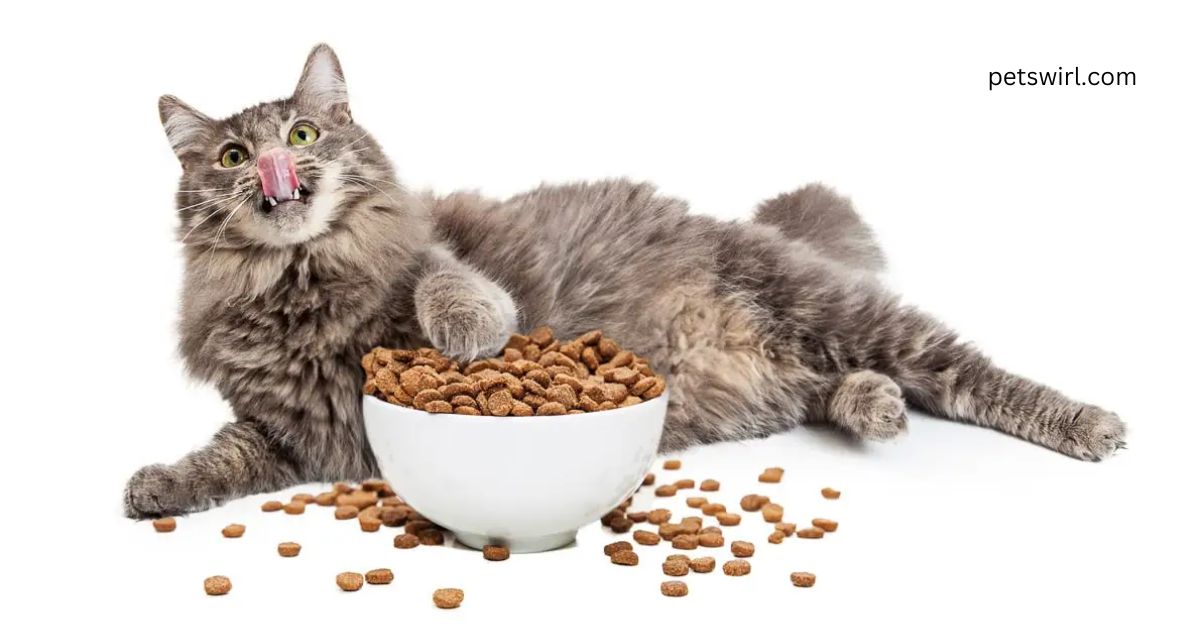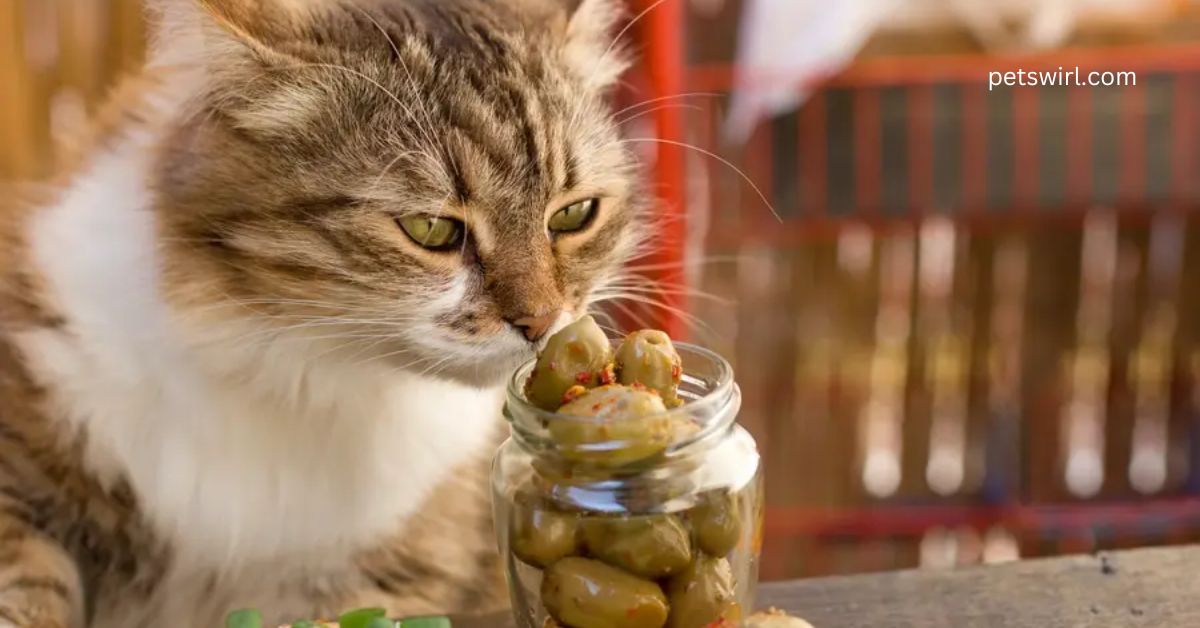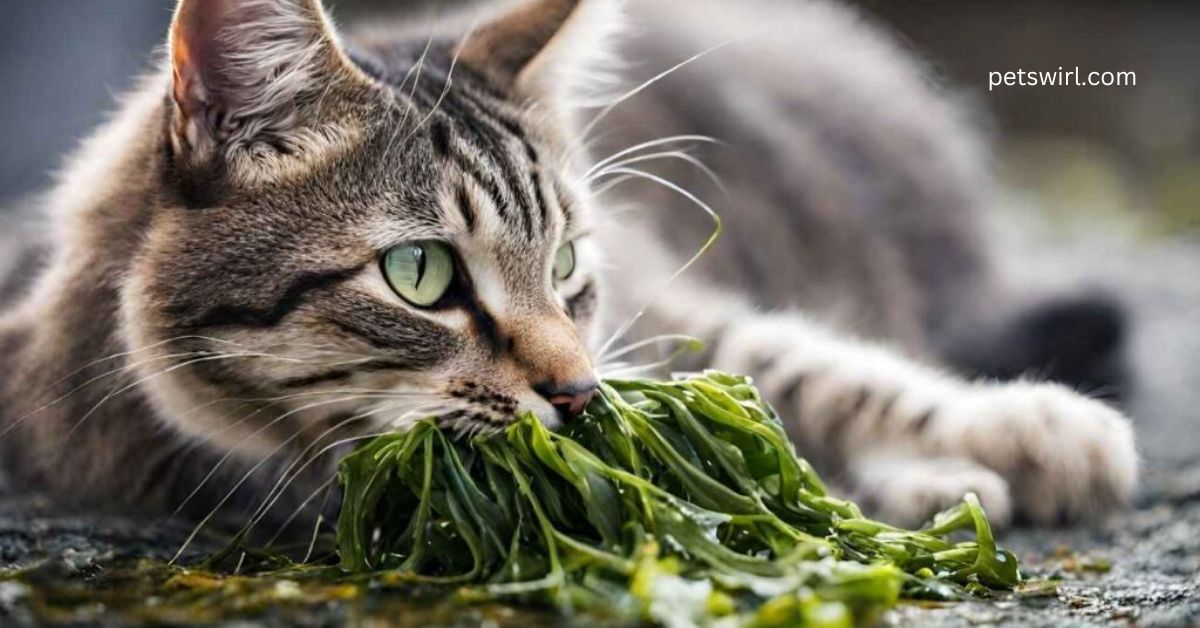As pet owners, it’s natural to wonder about sharing our favorite treats with our furry companions. One question that often arises is, “Can cats eat marshmallows?” While marshmallows are a popular sweet for humans, their safety for cats is a topic worth exploring. In this comprehensive guide, we will delve into the nutritional aspects of marshmallows, the potential risks they pose to our feline friends, and suitable alternatives that can keep your cat happy and healthy.
What Are Marshmallows?
Can Cats Eat Marshmallows?, Marshmallows are a soft, fluffy confectionery typically made from sugar, water, and gelatin. They often contain various flavorings and sometimes even food coloring. While these ingredients may be safe for human consumption, it’s essential to consider whether they are suitable for cats.
Nutritional Value of Marshmallows
Before discussing whether cats can eat marshmallows, let’s break down their nutritional profile:
- Sugar: Marshmallows are primarily composed of sugar, which provides no nutritional benefits to cats. Cats are obligate carnivores, meaning their diet primarily consists of meat. High sugar content can lead to obesity and diabetes in cats.
- Gelatin: Gelatin is derived from animal collagen, which may be safe for cats in small amounts. However, the quantity present in marshmallows is negligible compared to their sugar content.
- Flavorings and Additives: Many commercial marshmallows include flavorings and preservatives that may be harmful to cats. Ingredients like xylitol (a sugar substitute) are toxic to pets.
Are Marshmallows Safe for Cats?
Can Cats Eat Marshmallows?, The short answer is no, cats should not eat marshmallows. While an occasional tiny piece may not cause immediate harm, the risks far outweigh any perceived benefits. The high sugar content, combined with potentially harmful additives, can lead to various health issues in cats.

What Happens if a Cat Eats Marshmallows?
Can Cats Eat Marshmallows?, If your cat consumes marshmallows, several reactions may occur depending on the quantity ingested:
- Mild Digestive Upset: Your cat may experience mild gastrointestinal upset, leading to symptoms like vomiting or diarrhea.
- Sugar Toxicity: Although cats are not as susceptible to sugar toxicity as dogs, excessive sugar can still lead to obesity and diabetes in the long run.
- Long-Term Health Issues: Regular consumption of sugary treats like marshmallows can contribute to weight gain and related health problems, such as heart disease.
Common Misconceptions About Cats and Marshmallows
Can Cats Eat Marshmallows?, There are several myths surrounding cats and marshmallows that need clarification:
- Myth 1: Marshmallows are a harmless treat for cats.
While they may seem innocent, marshmallows provide no nutritional value and can be harmful to cats. - Myth 2: Cats can handle sugary snacks like humans.
Cats lack taste receptors for sweetness and do not require sugar in their diets. Their bodies are not designed to process high-sugar foods.
Safe and Unsafe Foods for Cats
Can Cats Eat Marshmallows?, Understanding which foods are safe for your cat is crucial for their health. Here’s a breakdown of safe and unsafe human foods:
Safe Foods for Cats
- Cooked meats: Chicken, turkey, and fish are excellent sources of protein.
- Vegetables: Carrots, peas, and green beans can be offered in moderation.
- Fruits: Small pieces of melon or blueberries can be safe, but always consult your vet.
Unsafe Foods for Cats
- Chocolate: Toxic to cats and can lead to severe health problems.
- Onions and garlic: These can damage a cat’s red blood cells, leading to anemia.
- Dairy products: Many cats are lactose intolerant and may experience digestive upset.
Alternatives to Marshmallows for Cat Treats
If you’re looking for safe and tasty treats for your cat, consider these alternatives:
- Commercial Cat Treats: Many brands offer high-quality treats specifically formulated for cats. Look for those made with real meat and limited additives.
- Homemade Treats: Can Cats Eat Marshmallows?, You can easily prepare cat-safe treats at home using simple ingredients. For example, mixing cooked chicken with a small amount of pumpkin puree can create a nutritious snack.
- Freeze-Dried Meat: Freeze-dried meat treats offer a crunchy, protein-rich option that most cats will love.
Also read: Dog Breathing Heavy
How to Make Cat-Safe Treats at Home
If you prefer homemade treats, here’s a simple recipe to get you started:
Chicken and Pumpkin Cat Treats
Ingredients:
- 1 cup cooked chicken (shredded)
- 1/4 cup pumpkin puree (unsweetened)
- 1/4 cup oat flour (you can blend oats to make your own)
Instructions:
- Preheat your oven to 350°F (175°C).
- In a bowl, mix the shredded chicken, pumpkin puree, and oat flour until well combined.
- Roll the mixture into small balls and place them on a baking sheet lined with parchment paper.
- Bake for 15-20 minutes or until firm.
- Allow them to cool before serving to your cat.
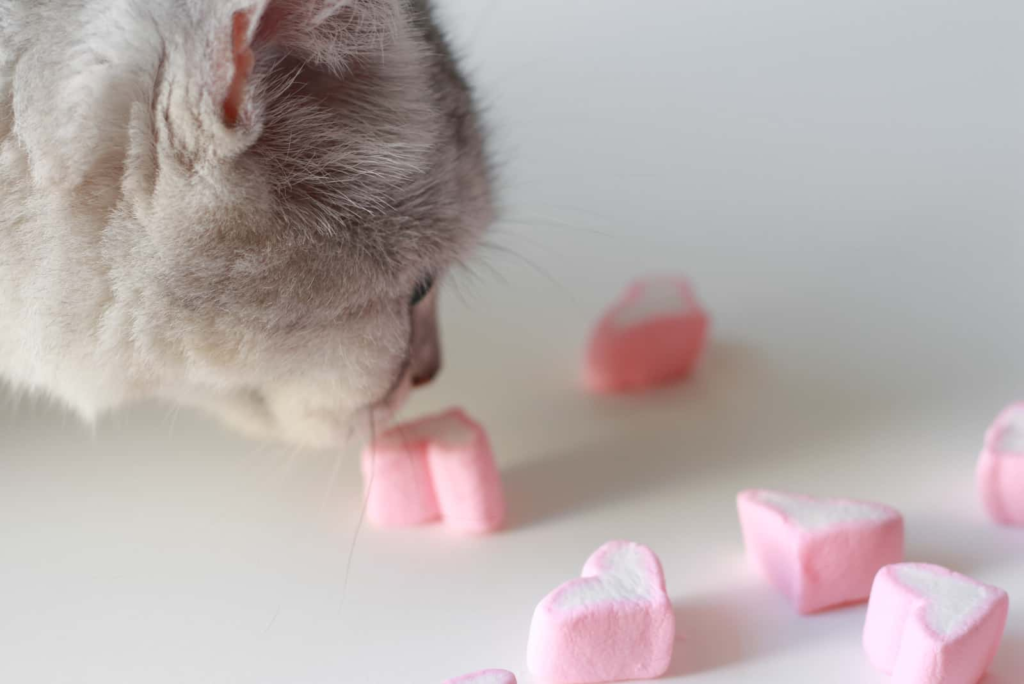
Consulting Your Veterinarian
Can Cats Eat Marshmallows?, Before introducing any new food into your cat’s diet, it’s crucial to consult your veterinarian. They can provide tailored advice based on your cat’s health, age, and dietary needs. If you’re unsure about a specific food, your vet can help clarify any concerns you may have.
Conclusion: Can Cats Eat Marshmallows?
In conclusion, the answer to the question, “Can cats eat marshmallows?” is a definitive no. The potential health risks associated with feeding marshmallows to cats, including obesity, digestive upset, and the presence of harmful ingredients, outweigh any benefits. Instead, consider safer alternatives that will keep your feline friend happy and healthy.
By being mindful of your cat’s diet and avoiding sugary, human snacks like marshmallows, you can ensure that your pet enjoys a long and healthy life. Always prioritize foods that meet their nutritional needs, and remember to consult your veterinarian for the best dietary practices for your beloved cat.
Final Thoughts
Can Cats Eat Marshmallows?, Your cat relies on you to make safe and healthy food choices. Instead of sharing your marshmallows, opt for treats designed specifically for cats. With a little creativity, you can provide a variety of safe snacks that cater to their natural instincts and dietary requirements. Your cat will thank you for it with purrs and playful antics!
By following these guidelines and understanding the implications of feeding human foods to cats, you’ll be better equipped to make informed decisions that support your cat’s well-being.
Also read: Understanding Dog Breathing Heavy


